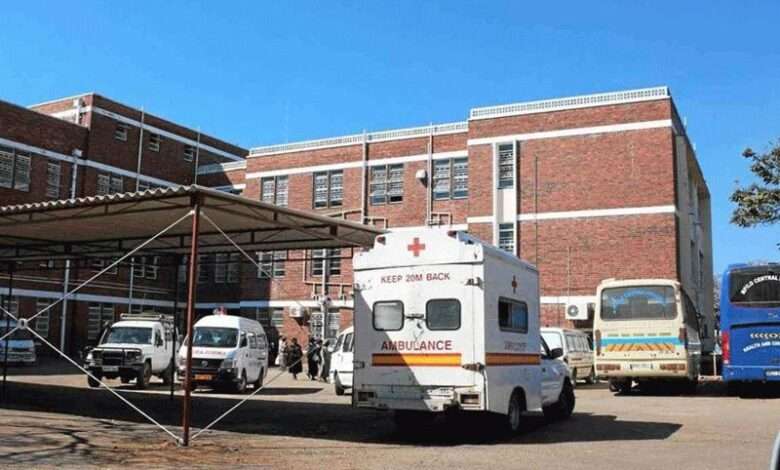Ingutsheni Patient Takes Another Patient's Life
Clinical psychologists believe rehabilitation centres will not cure the drug usage problem as long as the drug scourge is not curbed in communities

Ingutsheni Patient Takes Another Patient's Life
An incident in which a patient suspected to be under the influence of drugs reportedly killed a patient at Ingutsheni Hospital, has prompted parliamentarians to call for proper rehabilitation facilities in the country.
Ingutsheni Caregiver Assaults Mpilo Nurses Over Slow Service
During a motion on programmes to curb drug and substance abuse on Thursday, Nkulumane MP, Desire Moyo urged the government to build specific rehabilitation centres saying hospitals were not equipped to deal with drug abuse issues.
However, clinical psychologists believe rehabilitation centres will not cure the drug usage problem as long as the drug scourge is not curbed in communities.
According to the Nkulumane MP, the increase in drug abuse is because of poverty as well as lack of employment in the country, claiming that this leads to other illegal acts. Moyo said:
This is also causing an increase in murder cases as well as any other crimes, including road accidents.
In Bulawayo, we have Mpilo as well as UBH Hospital.
They are trying by all means to rehabilitate drug addicts but those hospitals were not meant or designed to take care of such.
For example, two weeks ago, where I come from in Nkulumane Constituency, we buried one person who died at Ingutsheni Hospital.
That person was killed by one of the patients.
The person was murdered at night and was found dead in the morning.
This is all because those hospitals were not designed for drug addicts, but mental cases.
Moyo said the government should construct specified rehabilitation centres and make sure that the private sector is allowed to contribute to that.
The Government should also promote artists to increase awareness of drug and substance abuse.
In an interview with CITE, Ingutsheni Hospital Clinical Director, Dr Wellington Ranga confirmed “someone died,” from the institution but explained that curbing drug and substance abuse needed more than rehabilitation centres.
Ingutsheni Patient Takes Another Patient's Life
The community is where people are supposed to be living not in Ingutsheni but if people are not able to live with their relatives at the community at the end of the day and dump them at Ingutsheni then start looking for things to blame us it’s very unfair.
I don’t agree with the concept of rehabilitation centres and not that it’s coming from politicians.
Dr Ranga explained that the community must address the reasons why people resort to drugs. The clinical Director said:
Firstly, if you find the community trying to chase away people from their community, it means they are failing.
In this case, whether it’s a politician or a pastor they are not wanting to admit that they are failing and wanting to shift the problem to something in calling for a proper drug rehab centre.
What’s wrong with someone with an addiction?
Is it because they are sick or the community where they are has a problem?
The problem is both the community and the person are sick and if trying to take one person out of it, the community will create another one.
This concept or fallacy about rehab centres doesn’t work anywhere.
Dr Ranga said the focus should be on solving the problem.
Politicians should go into the community and solve the problem that’s where it’s coming from because if you don’t sort the origin of the problem, you are trying to address the need to say let’s set up this kind of thing.
He added that it would create a situation where people blame each other.
Temba Mliswa's Daughter Caught in Drug Bust
The doing is in preventing that thing from happening and that thing is in the community because people don’t take drugs because they are not in a rehab centre.
People take drugs because they are living in a community, which is twisted.
If you don’t sort out that community forget about rehab this and that. People will always get drunk, addicted and be a nuisance.
Source| CITE
























